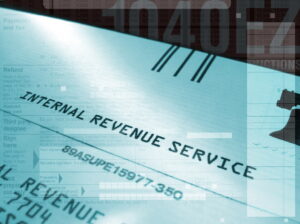IRS notices creating alarm: Here is what to know
 Beginning in April, several IRS notices began hitting mailboxes. Unfortunately, the notices are coming in cold, as the IRS is turning on mailing their notices after a long time of being off. Their process is creating a lot of undue alarm.
Beginning in April, several IRS notices began hitting mailboxes. Unfortunately, the notices are coming in cold, as the IRS is turning on mailing their notices after a long time of being off. Their process is creating a lot of undue alarm.
Example: A small business that is current in its tax payments receives a right to levy asset notice. In other words, pay this tax, interest, and penalties, or we will have the immediate right to take your assets and keep you from leaving the country. Many notices are typically sent before the levy notice, but the levy notice is the first one received. Even worse, the cause of the problem was the IRS incorrectly applying their tax payment to 2024 instead of 2023.
Example: An individual receives a notice from the IRS assigning their account to a collection agency. In reality, the taxpayer paid their tax and was waiting for the IRS to clarify what interest was due on their late payment. The IRS never sent a response.
Why the IRS notices
The IRS turned its notice system back on after a long hiatus during the pandemic. Unfortunately, no review or adjustments were made before the notices were turned back on. So,
- There was no correspondence from taxpayers to clear up errors over this period. The taxpayer did not know about these errors because notices were turned off.
- The letter cycle clock never stopped. This means instead of getting the next notice in the series, you might receive the fourth or fifth letter.
To make matters worse
In the first example, the IRS representative could see that the payment was erroneously applied to next year’s unfiled tax return. Still, the IRS representative was not authorized to correct the error. After calling the department with authorization, the accountant learned that the ability to transfer payments was disabled for up to 30 days.
Even worse, communication is not necessarily passed to the collections (levy) group because the error is now known. So, the levy activity may still be going on, even though the error (theoretically) is now known.
These notices were mailed in April, during the tax filing season.
What to do if you receive one
If you receive a notice, don’t panic, but don’t ignore it. Call for help to respond to the IRS on time. This almost always means 30 days, so it can generally be handled right after the upcoming tax filing deadline.
Since little review appears to be done on many of these open tax cases, the missing step will typically be your first step in helping clarify and fix the problem. Contact our RRBB advisors if you have any questions or concerns.
RRBB eNEWSLETTER
Get free tax planning and financial advice




